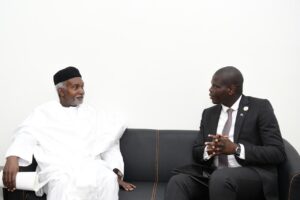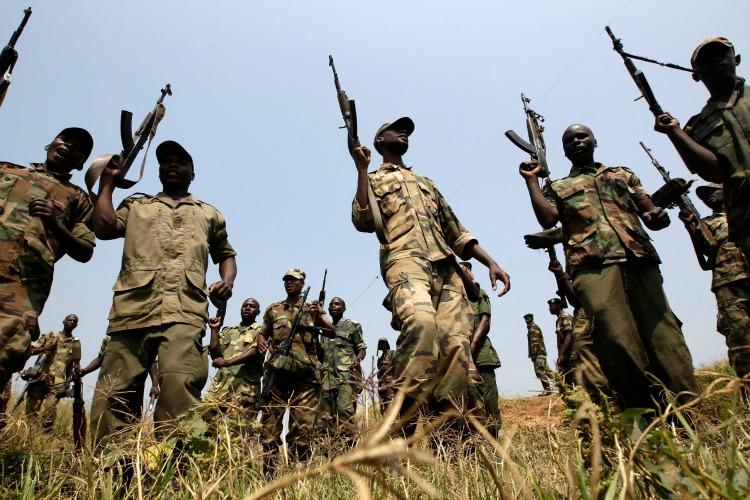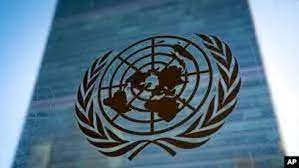OPINION
The Brawl by Sudan’s Generals and Implications for Nigeria
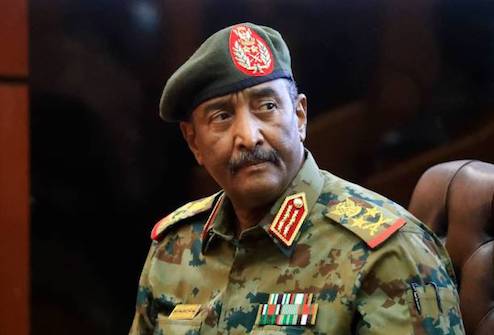
By Lizzy Okoji
With air strikes in Khartoum, Darfur, and other cities of Sudan resuming just hours after the ceasefire, one would only wonder what next to expect in the conflict-torn country.
The current conflict in Sudan which started on April 15 is the result of the lingering rivalry between two Generals, Sudanese President, Gen.
The quarrel dates back to 2021 after al-Burhan overthrew the joint military-civilian government which ousted Sudanese long-serving President, Omar al-Bashir in 2019.
Since then, al-Burhan head of the Sudanese Armed Forces and former Chairman, Sudan Transition Sovereignty Council and Dagalo, popularly called ‘Hemedti’, head of the Rapid Support Forces (RSF) have been are locked in a deadly fight over who will control of the country.
Former Director-General of the Nigerian Institute of International Affairs (NIIA),Prof. Bola Akinterinwa, described the conflict as an unfortunate product of selfish leadership.
“What is happening in Sudan is that we have two Generals fighting and the African Union expects that under normal circumstances, there must be peaceful approach to it; using war to take over power is illegal.
“Why the war is most unfortunate is because those who are fighting were together in the same camp as at 2019.
“In this case, what brought them together initially, what is now separating them is because of selfishness and this is why I think it is most unfortunate.
“Many lives have been lost, many people have been displaced and rather than focusing their attention on the economic situation in Sudan they are fighting over who will be in charge of the country,” Akinterinwa said.
Akinterinwa blamed the degeneration of the political situation of Sudan on the failure of all parties to adhere to agreements before the ousting of former President al-Bashir in 2019.
When two elephants fight, the grass suffers. The conflict in Sudan has forced many grasses, including Nigerians in Sudan and other foreigners to suffer unimaginable losses.
There are growing concerns over the safety of Nigerians in Sudan as the Federal Government makes frantic efforts to evacuate them through neigbouring Egypt.
Also a source of worry is the impact of such an arms conflict in Sub-Saharan Africa which is also a theatre of terrorist activities fuelled by illegal arms deals by dubious elements from conflict-ravaged countries such as Libya.
The impact of the conflict in Sudan, experts say, could resonate in heightened insecurity, humanitarian crises, and economic difficulties, for Sub-Saharan African countries, particularly Nigeria which has had to contend with terrorist groups such Boko Haram and ISWAP.
A security expert and Managing Director, Beacon Consulting Limited, Dr Kabiru Adamu, said that given the number of Nigerians in Sudan there is the likelihood of some criminal elements infiltrating the group as evacuation goes on.
“In a recent interview, the Sudanese Ambassador to Nigeria claimed that there were about five million Sudanese of Nigerian descent currently living in different parts of Sudan.
“Some of them are fourth generation, fifth generation or even longer than that; there is a strong business link, especially the north Eastern part of Nigeria.
“Given these huge numbers it is only normal that there would be concerns. Another area of concern is the possibility of a prolonged conflict reinforcing or institutionalising the spread of weapons.
“Already, Nigeria has that challenge. There are so many weapons within the region including Nigeria, small arms and light weapons”, he said.
He said the security implication for Nigeria is worsened by the age-long gun running channels that goes through Sudan which could expose Nigeria to the activities of gun runner due to its potential large market for illegal arms.
“The entire Sahel region is almost being dominated by Jihadists, Burkina Faso is an example, Mali, Niger to an extent, and Sudan and Chad used to be the only countries that presented some sort of hope.
“So, if there is a degeneration of the security situation in Sudan you could see the infiltration of these jihadists into other regions including Nigeria,” Adamu said.
The international community said it would do everything possible to end the Sudan conflict.
The United Nations Secretary-General, Antonio Guterres, said the UN would use all its instruments, institutions and structures to ensure that all the parties in the conflict appreciated the need to sheath their swords and embrace peace.
“The United Nations is not leaving Sudan. Our commitment is to the Sudanese people in support of their wishes for a peaceful and secured future. We stand with them at this terrible time.
“I call on all council members to exert maximum leverage with the parties to end the violence, restore order and return to the best of democratic transition.
“We must do everything within our power to pursue them from the edge of the abyss,” Guterres told a recent Security Council meeting on maintaining international peace.
Experts say the intervention of world leaders, especially African leaders is critical to resolving the conflict in Sudan.
The brawling Generals must accept that no country thrives under war and conflicts. Peace cannot be kept by force; it is always a product of compromise. (NAN)
OPINION
The Impact of Incessant Attacks in Farming Communities
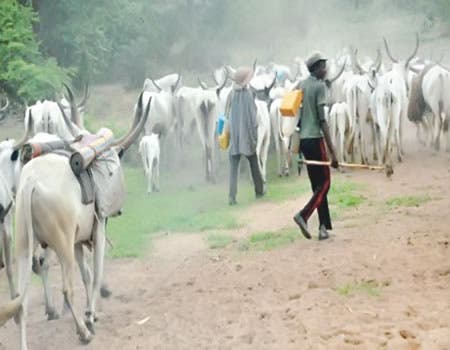
By Efe Omoghene
Rural communities across Nigeria’s Middle Belt and the North, which were once the major cities’ food pipeline, are now struggling to feed themselves. Thriving farmlands now bear the weight of fear and insecurity. With each disrupted planting season, the country edges closer to a more profound food security crisis, exacerbating what began as a regional instability into a nationwide emergency.
Incessant attacks have led to deaths and the displacement of farming communities in states that contribute significantly to Nigeria’s agricultural output. In June alone, attacks in Benue State, the “Food Basket of the Nation”, claimed dozens of lives and uprooted entire communities. While these incidents are heartbreaking, they are not new; we are only witnessing frequent recurrence. This troubling pattern of insecurity continues to force farmers off their land, disrupt food production, and weaken the nation’s ability to feed itself.Statistics from the Internal Displacement Monitoring Centre show that an estimated 295,000 internal displacements related to conflicts and violence were reported in Nigeria in 2024 alone. This includes the states of Benue, Borno, Katsina, Sokoto, Yobe and Zamfara. This is not just a crisis of safety; it’s a crisis of sustenance.For years, states such as Benue, Kaduna, Niger, Plateau, and Zamfara have been key food-producing regions, responsible for much of Nigeria’s grains, roots, fruits, and livestock. However, these areas are increasingly becoming places where violence has made farming a risky endeavour. Clashes between herders and farmers, banditry, terrorism, and communal violence have transformed fertile lands into contested zones. When farmers fear for their safety, they often cease farming or abandon their land altogether.The impact is already being felt. Markets are seeing rising prices on staple foods like yams, rice, and tomatoes. According to the National Bureau of Statistics, the cost of beans in the country in October 2024 was 282 per cent higher compared to the same period in 2023.The Food and Agriculture Organisation’s trend analysis for the north-eastern states indicates persistently high or increasing levels of food insecurity since 2018. The number of people needing urgent aid has increased by at least four million annually during the lean seasons since June 2020. Additionally, the north-west and parts of the north-central regions now exhibit critical levels of severe food insecurity and malnutrition, identifying them as major hunger hotspots requiring urgent attention from policymakers.A study revealed that 52.44 per cent of respondents in Niger State experienced food insecurity due to various insecurity activities such as blocking local routes, killings, kidnapping, and disruption of market functions. Insurgencies in the North Central states have also contributed to rising poverty levels among livestock farming households, with 83.84 per cent of livestock farmers participating in a study reporting significant declines in livestock production due to insurgency.If this pattern continues unchecked, the consequences could be long-term. More families will face hunger, and young people will leave rural areas for safety and work, draining the agricultural workforce in rural communities. Dependence on humanitarian aid will rise, and the burden on government resources will increase.This year, Nigeria is already projected to face a significant hunger gap, with up to 33 million people at risk of acute food insecurity in the lean season (between June and August), according to the FAO. This represents a seven million-person increase from the same period in 2023.Food security is not solely the government’s responsibility. It is a basic human right and our collective responsibility. Relying solely on farmers in distressed areas is not a very practical approach. Thankfully, the country is not in a hopeless situation.Across Nigeria, there are numerous examples of humanitarian and community-led peacebuilding efforts in action, and Sahel Consulting is proud to be part of this momentum. We are actively collaborating with local and international partners to develop practical solutions in the food value chain, empowering farmers and strengthening agribusinesses across Nigeria.Through our programs in dairy, seed, tuber, and policy systems, we are facilitating the increase in productivity, improving market access, and building capacity at the grassroots level. Whether it’s training dairy farmers in Adamawa, scaling clean seed yam innovations in Benue, advancing true potato seed systems in Plateau, or improving livestock nutrition through feed and fodder initiatives, our work is rooted in collaboration, innovation, and long-term impact.Similar efforts are taking shape through the work of the Gates Foundation. Gates Ag One, in partnership with the Institute for Agricultural Research at the Ahmadu Bello University, Kaduna State, is providing farmers with access to improved seed varieties for crops like beans and maize, engineered to resist pests and withstand drought. The foundation also funds projects to enhance livestock productivity and strengthen dairy value chains.State governments have also started implementing policies to support ranching to address farmer-herder conflicts and enhance agricultural productivity. Eleven states, including Anambra, Bauchi, Delta, Jigawa, Kano, Lagos, Niger, Nasarawa, Ondo, Plateau, and Zamfara, are either allocating land for ranches, developing policies, or committing to do so in the future. This initiative is part of a broader shift from open grazing to more modern, sustainable ranching practices. Farmer-herder dialogues, early warning systems, and conflict mediation groups have all demonstrated promise.Private organisations are also collaborating with ministries, agencies, and local partners to support resilient food systems through training, innovation, and market access.This is by no means the end of the story. While these efforts are commendable, their impact is not particularly noticeable vis-à-vis the insecurity, as they are implemented in isolation and on a relatively small scale. The real challenge, and opportunity, lies in collaboratively scaling initiatives that are working. For lasting change, we need to invest more in proven interventions. Government policies must be supported by robust implementation strategies, and private and development actors must be empowered to apply these models in more communities across the country.It is not enough to initiate these projects; we must establish frameworks that ensure they are sustainable, community-led, and responsive to the realities of the local communities. Clear safeguards and inclusive principles must be in place, especially in areas where displacement and land rights are already sensitive issues. Any solution must consider the voices of host communities and guarantee mutual benefit.Let’s focus on what’s already showing promise, such as improved seed distribution, inclusive value chain optimisations, and community-based peacebuilding. But let’s also be honest: we need to do much more, and we must do it together.The key is to make human security a foundation, not an afterthought, for agricultural development. Farmers need more than seeds and tools. They need to know that if they invest in their land, neither their lives nor their farms will be lost to violence; if they plant, they will live to harvest.Food security starts with human security. When fields are safe, they flourish. And when rural communities thrive, the whole country benefits—from Lagos to Maiduguri, Port Harcourt to Makurdi.Efe Omoghene is the strategic communications officer with Sahel ConsultingOPINION
The Task Before North Central Development Commission
By Bridget Tikyaa
The creation of the North Central Development Commission by President Bola Ahmed Tinubu has rekindled hope and set the tone for a new lease of development in the entire states of Benue, Nasarawa, Kwara, Kogi, Niger and Plateau, as well as the Federal Capital Territory (FCT).
These are states that have suffered long years of economic hardship, insecurity, displacement, disruption of basic services including schools and health infrastructure, and much more. With the inauguration of the board of the commission, whose headquarters is in Lafia, Nasarawa State, all is now set for the commission to articulate its programmes and swing into action. Already, the Federal Government has made provisions in the 2025 budget for the funds with which the commission will execute its programmes and projects.One of the key tasks the commission must plan for and address is the endemic rural poverty and economic hardship in the North central region. Over 75% of rural Nigerians live below the poverty line, with widespread economic stagnation, inflation, and insecurity contributing to severe economic hardship. The region’s dependence on oil and limited diversification have exacerbated poverty, with 30.9% of Nigerians living below the international extreme poverty line of $2.15 per day. This, no doubt, deserves frontal, timely and decisive action to contain.Another troubling aspect in the region is the level of insecurity and conflict being witnessed from Benue to Niger, Kwara and Kogi, Nasarawa and Plateau. The region is plagued by conflicts between farmers and herders, banditry, local militias particularly in Benue and Plateau states, resulting in loss of lives, displacement of communities, and decline in agricultural productivity. Insecurity has also limited access to cropland and restricted access to agricultural inputs. It is therefore imperative for the commission to interact with key stakeholders and devise a regional approach to the security challenges, including the establishment of a regional security, including support to existing security agencies to ensure a decisive and prompt response to the challenges. The safer the region, the more it takes the right steps to address other challenges.The North Central Development Commission should also have a blueprint to respond to the climate change and environmental issues in the region, from rising temperatures, erratic rainfall, flooding, and drought, to erosion and deforestation. Presently, these challenges have intensified existing vulnerabilities, disrupting education, health services, and community protection mechanisms. Climate change has also contributed to resource-based conflicts over land, water, and minerals as in Benue, Niger and Plateau states.One fundamental issue the commission must develop a Marshal plan for is the scourge of displacement and humanitarian crisis due to conflicts that had made over 300,000 homeless in just four states, including Benue and Nasarawa. This has resulted in increased vulnerability to gender-based violence, exploitation, and abuse, particularly among women and girls. This vulnerable population needs protection, security, emotional and economic support, and mental health evaluation, among others. The commission, therefore, has a huge task ahead of it, working in sync with the government of the six states, development partners and other stakeholders, to justify its creation by making a huge presence in the lives of the people of the region.The six states in the North Central also face limited access to basic services, including healthcare, education, and protection mechanisms. There are a number of areas where health facilities and schools have been destroyed or disrupted, thereby exacerbating the existing vulnerabilities. There are also the governance and leadership challenges due to weak governance structures, corruption, and poor management of the region’s natural resources. Over the years, the lack of effective leadership and accountability has hindered efforts to address poverty, insecurity, and climate change in the region and other parts of the country.These interconnected challenges, no doubt, require a comprehensive and multi-faceted approach to address, and the North Central Development Commission can greatly contribute to the solutions by vigorously promoting the region’s development, sustainable growth and stability.By Bridget Tikyaa is a Media Expert and writes form MakurdiOPINION
Olukoyede and the New EFCC
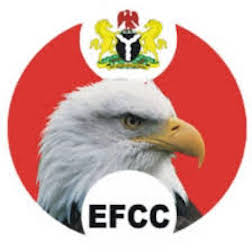
By Reuben Abati
Last Friday, 18 July, the incumbent Chairman of the Economic and Financial Crimes Commission (EFCC), Ola Olukoyede was in Lagos to hold a sensitisation programme on Naira Abuse, at the Colonades Hotel, Ikoyi, Lagos. What was reported in most newspapers and other platforms, was the EFCC czar’s disclosure that 18 currently serving Governors are under investigation by the EFCC, and that as soon as these Governors are out of office, the EFCC will pounce on them.
He hid the juicy part of the story by not disclosing names. Nigerians would have loved to know who these suspected thieving Governors are, at a time the people are groaning under the effect of petrol subsidy removal, high cost of living and the state governors are getting more money than they ever did.The EFCC has the powers to investigate sitting Governors, Deputy Governors, the President and the Vice President, but they are covered by Section 308 of the 1999 Constitution which grants them immunity from prosecution while in office.The intendment of Section 308, is to prevent this category of public officials from being distracted by a plethora of petitions that they may need to respond to. This is however not the case in every part of the world. In countries like South Africa, Israel, the United States, Brazil and France, not even the President is protected from prosecution.In March 2021, for example, former President of France, Nicolas Sarkozy was sentenced to a year in prison for corruption and influence peddling. In 1974, US President Gerald Ford lost his position because of clear, irrefutable evidence of wrong-doing in the Watergate scandal. In South Korea, sitting and former Presidents have been sent to jail, the latest being President Yoon Suk-Yeol, and before him, President Lee Myung-bak (MB).In Brazil, the inimitable President Luiz Lula da Silva spent time behind bars (2017-2019). The principle is that nobody is above the law, and that misdeeds at any level must not go unpunished. Nigerians would want a review/amendment of Section 308 of the 1999 Constitution to hold public office holders, all of them, regardless of position, accountable. It is most unfortunate that this is not a major issue in the ongoing discussions about constitutional amendment. It is unthinkable that any President, former or incumbent would be convicted in Nigeria. The immunity at that level is for life.Olukoyede had disclosed that the typical pattern for serving Governors is to run away before the expiration of their right to immunity. We are all witnesses to the fact that it is standard practice indeed for Governors to “japa” and not even wait to hand over to their successors. By simply serving notice, it is not impossible that the guilty among the Governors would be afraid and try to cover their tracks.The media won’t choose what will sell the news, and perhaps it is juicier to focus on the fact that 18 serving governors are being watched closely. The main substance of Olukoyede’s sensitisation programme however, was Naira Abuse, an event organised in “close concert with the Central Bank of Nigeria.” Before then, Olukoyede’s EFCC had set up a Task Force on Dollarisation and Naira Abuse to address “some of the practices that threaten the value of the currency”.Within the purview of Section 21 of the CBN Act, 2007, all acts that constitute Naira abuse are punishable for a term of not less than six months or a fine of not less than N50, 000 or both. These include the spraying of the Naira, dancing on it, marching and stepping on it, mutilation or defacement, and the selling or trading of Naira notes.This latter is a very common practice in Nigeria – the banks never give out new notes but every weekend at parties, naira merchants sell crisp national currency for profit, making us wonder whether there is a parallel Mint in the country where the Naira is printed.Ola Olukoyede, has made the protection of then naira, a major point of campaign. It is on record that with him as EFCC Chairman, many celebrities have been called to question for abusing the naira. There is the case of Idris Okuneye, aka Bobrisky, who purportedly spent six months at the Ikoyi Correctional Centre for spraying the Naira at a public gathering. Bobrisky pleaded guilty.Pascal Okechukwu, popularly known as Cubana Chief Priest was also arraigned in April 2024, but he pleaded not guilty. His own lawyers even went as far as questioning the jurisdiction of the court and the prosecutorial powers of the EFCC.Bobrisky was convicted, Cubana Chief Priest escaped with a fine of N10 million. Both men have not abused the Naira since then. Bobrisky is in fact so beaten and sober that he/she in fact took the safe option of lying low, disappearing from the social scene.Who would have thought that the famed “Mummy of Lagos” having gone to the college of imprisonment would calm down? As recently as May 2025, one Okoli Frank Emeka was sentenced to six months imprisonment for marching on the naira at Al Moruf Garden, Isheri Olofin, Lagos. The same month, one Kelly Okungbowa, aka Ebo Stone was arraigned before a Federal High Court sitting in Benin on a two-count charge of Naira abuse.In Kaduna, a TikToker and content creator, Muhammad Kabir Sa’ad was arrested and charged to court for mutilating the Naira. Kabir dared the EFCC in a video online to come and arrest him. They did. But the arrests were not limited to the average, struggling Nigeria.Earlier in January 2025, two sons of billionaire businessman, Razaq Okoya – Wahab and Raheem Okoya were invited for questioning for spraying bundles of N1, 000 Naira notes in a promotional clip for Raheem’s new song, “Credit Alert”.In May 2025, the EFCC also summoned the celebrated actress, Iyabo Ojo, self-styled Queen Mother, for the abuse of the Naira during her daughter, Priscilla’s wedding to the Tanzanian artiste, Juma Jux in Lagos. Iyabo Ojo was lucky, and she has not been seen anywhere spraying Naira notes again. Another actress, Oluwadarasimi Omoseyin was not so lucky.She was sentenced to six months imprisonment for spraying and tampering with the Naira at an event at Monarch Event Centre, Lekki, Lagos on January 28, 2023. In May 2025, the popular comedian and actor, Ayo Makun was also invited for questioning. He was so happy that the EFCC pardoned him, he issued a statement in which he said he had learnt his lessons.Despite all these cases, Nigerians continue to abuse the Naira contrary to Section 21(1) of the CBN Act, 2007. What the EFCC seems to have achieved is a drastic reduction in the obscene spraying and mutilation of the Naira that was the norm, and the effrontery of the partying crowd.The abuse started with the fun-loving people of the South West, the Yoruba who enjoy spraying the naira lavishly as a show of class and wealth but the behaviour soon spread to other parts of the country, particularly the East where the Igbo nouveaux riche have added spectacular colour to the spraying of the Naira and other currencies with the aid of a hand-held spraying gun, and accustomed sass. I once deplored this practice in a controversial article titled “Obi Cubana and the Oba Funeral”, (ThisDay, July 20, 2021).But neither this nor any other intervention has encouraged Nigerians to obey the law. Their standard excuse as articulated by Deyemi Okanlawon, an actor, is that the EFCC should focus more on other issues rather than the spraying of the Naira which is “a cultural problem”. It is perhaps for cultural reasons that many Nigerians have continued to spray the Naira, but they have found a way of taming the law.It is common these days to find celebrants carrying cartons or boxes into which money is deposited. Quite a number of thick-headed persons still spray and abuse the Naira at parties though, stubbornly insisting that they have the right to do what they wish with their money.Ola Olukoyede responded to this cultural argument as follows: “there is nothing cultural about spraying and stamping on the Naira or throwing wads of the currency in the air at social events. Nowhere in the world is such despicable practice tolerated.Nobody who works hard to earn money will go to social events and stamp on the currency. As a salary earner myself, it is unimaginable for me to go out and start throwing my hard-earned salary in the air!” The EFCC chair added that the Naira is a symbol “of our sovereignty and economic might” whose integrity must be protected.Its abuse is a punishable offence. He further cited the example of a former Governor, who after his tenure in office, celebrated his birthday in a hotel in London.The said Governor sprayed 50 and 10 bills in pounds sterling. The hotel manager having never seen such a thing in his life, called 911 and summoned the Metropolitan Police. The former Nigerian Governor was arrested and the police wanted to put him in an ambulance. According to the EFCC Chair: “The people – his friends, colleagues, and two governors – who went to London to celebrate with him had to intervene.They said the ex-Governor was not a mad man because the hotel manager thought he was mad.” It should be considered quite interesting that what is considered normal in Nigeria is interpreted as pure madness in other countries.Olukoyede has brought an evangelical fervour to the fight against economic and financial crimes. He is, by the way, a Pastor in a Pentecostal church. What he has achieved is to remind his audience and the larger Nigerian community that ignorance of the law is not an excuse, and that no one is above the law. He also drew attention to what the law says.He is a lawyer. In attendance at the Colonades Hotel event were musicians, actors, event organizers, influencers, content creators, hospitality stakeholders, financial sector representatives and the general public. Some of the celebrities in attendance included King Alabi Pasuma, the Fuji artiste, MI, Ill Bliss Goretti, Osas Ighodaro, Pretty Mike, Terry Apala, Mercy Aigbe, Kazim Adeoti, Funke Bucknor-Obruthe, Anto Lecky and others.Musicians and event organizers depend on the spraying of Naira for extra patronage and encouragement. What is new is the EFCC’s attempt to invest heavily in public sensitization. The agency also has an anti-corruption radio station, EFCC 97.3 FM in Abuja, whose broadcast is live streamed through the EFCC website, www.efcc.gov.ng. Ola Olukoyede rose through the ranks within the EFCC to get to the apex position, but other Chairmen before him did not bother as much about public sensitisation.Section 6(p) of the EFCC Establishment Act, 2004 as amended, states among the functions of the agency: “carrying out and sustaining rigorous public and enlightenment campaign against economic and financial crimes within and outside Nigeria.” Olukoyede is giving effect to this to a higher degree like no one else before him.Past Chairmen have been accused of allowing the EFCC to be used as a tool of political intimidation, and witch-hunt as has been robustly evidenced in two books by Muhammed Bello Adoke viz: Burden of Service: Reminiscences of Nigeria’s Former Attorney General (2019) and OPL 245: The Inside Story of the $1.3 bn Nigerian Oil Block (2025).This is not the case with Ola Olukoyede. But he has also had his own share of criticisms as in for example, Steve Osuji’s “EFCC’s alarming impunity” (July 10, 2025) which has attracted a rejoinder in a piece titled “Campaign of calumny against EFCC” (Punch, July 21, 2025) by Dele Oyewale, the EFCC spokesperson.Last Friday, the EFCC Chair painted a picture of the achievements of the EFCC under his watch, denying any charge of impunity. To be fair, there has been relatively less hysteria in his campaign against corruption. He regards the battle as a collective responsibility. He wants an all-of society-approach. It will be recalled that he was the first EFCC Chairman to admit publicly that there is corruption even within the EFCC.In 2024, Olukoyede sacked 27 of his own men for misconduct and fraudulent activities. He also ordered a probe into an alleged fraud of $400, 000 linked to a sectional Head of the EFCC. But perhaps what is more remarkable about the EFCC these days, is that there have been no serious allegations that the agency is being used for political vendetta.The credit for this belongs to Olukoyede, and President Bola Ahmed Tinubu who has given him the free hand to do his job, the best way he understands it. But will he win the battle against Naira abuse? The best that he can hope for is limited success. The madness of Naira plunking seems to be a genetic affliction among Nigerians. He would be better off finding a cure for it. He is doing well.Reuben Abati, a former presidential spokesperson, writes from Lagos.






